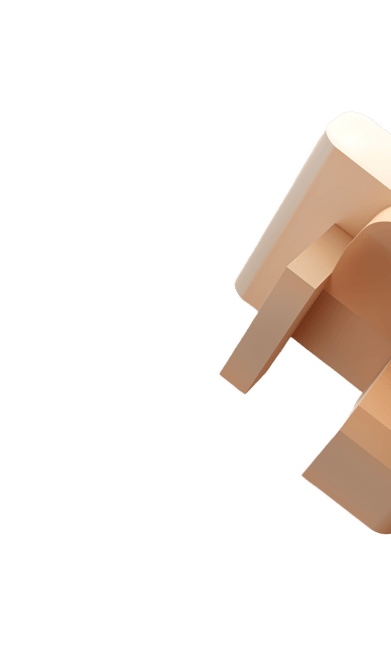Deposit Unlock Explained: Everything First-Time Buyers Need to Know
The Deposit Unlock scheme presents a significant opportunity for first-time buyers to enter the property ladder with a reduced deposit. With its flexibility and wide property coverage, it’s an attractive option for many. However, as with any financial decision, it’s crucial to weigh the pros and cons and seek professional advice to ensure it aligns with your circumstances and long-term financial goals.
Key takeaways
Deposit Unlock is an innovative scheme designed to help first-time buyers in England and Wales overcome one of the most significant barriers to homeownership – the large deposit. It enables buyers to purchase a home with a much smaller deposit than traditionally required, often as low as 5%.
It's available through select lenders like Nationwide, Accord Mortgages, and Newcastle Building Society.
The offer exclusive to new build properties, built only by participating house building companies.
It involves a straightforward application process via a mortgage broker.
It provides financial benefits but may include higher interest rates.
Pros and cons
Pros:
Lower deposit requirement, making homeownership accessible sooner.
A large amount of housing developers are taking part in the scheme.
The scheme covers mortgages up to a maximum of £750,000.
Cons:
Potentially higher monthly repayments due to a larger loan amount.
May incur higher interest rates compared to traditional mortgages.
Limited availability as it depends on participating lenders.
Limited to new build properties only.
How does Deposit Unlock work?
The scheme works by reducing the deposit requirement for homebuyers. Instead of the standard 10-20%, Deposit Unlock allows for lower deposits, making mortgages more accessible. It often involves lenders taking on a higher loan-to-value ratio, supported by insurance policies that protect them against potential losses.
Which mortgage lenders are participating in the Deposit Unlock scheme?
Several mortgage lenders are participating in the Deposit Unlock scheme. The list of participating lenders can change, so it's advisable to consult a mortgage advisor or research current options for the most up-to-date information. Here are the mortgage lenders currently participating in the scheme:
Nationwide
Offers loans for homes bought through the Deposit Unlock scheme up to £750,000.
Options include a 5-year fix at 95% LTV at 4.99% with an arrangement fee of £999, or 5.09% with no fee. They also offer a 2-year fix at 5.54% with a fee or 5.79% without a fee. Both options include a free valuation, and first-time buyer rates also come with £500 cashback.
Accord Mortgages
Allows borrowing up to £600,000 under this scheme.
Their offers include a 5-year Deposit Unlock fixed rate of 5.30% with an arrangement fee of £495, or a fee-free rate of 5.40%. Both include a free valuation and £250 cashback.
Newcastle Building Society
Initially part of a pilot scheme, they now offer loans up to £750,000.
Their offers include a 2-year fix at 5.89% and a 5-year fix at 5.79% to 95% LTV, both without arrangement fees and including free valuation on properties up to £500,000.
These mortgages are available exclusively via brokers, emphasising the importance of consulting a mortgage advisor to access the best deals and understand the latest rates, as they can change rapidly.
Which house builders are participating in Deposit Unlock?
Several prominent UK house builders are participating in the Deposit Unlock scheme, keen on supporting first-time buyers in their homeownership journey. It's important to note that the list of participating builders may vary and can expand over time.
As of the current writing, some of the key participants include Barratt Homes, Persimmon Homes, and Taylor Wimpey. These builders offer a wide range of properties, from city centre apartments to suburban family homes, catering to diverse buyer preferences and needs. Please check with specific builders or your mortgage advisor to confirm their participation in the Deposit Unlock scheme.
A note on the Home Builders Federation
The Home Builders Federation (HBF) plays a key role in supporting the Deposit Unlock scheme. As advocates for the home building industry, they actively participate in discussions with government bodies and lenders to facilitate the scheme's implementation. They promote the scheme among their members, encouraging their participation and thereby increasing property options available to first-time home buyers.
Furthermore, the HBF assists in spreading awareness of the scheme, helping potential homeowners understand its benefits and how to avail themselves of it. By acting as a conduit between housebuilders, lenders, and buyers, the HBF is pivotal in ensuring the Deposit Unlock scheme's success and its ultimate goal of making homeownership more accessible.
Who is eligibile to use the deposit unlock scheme?
Deposit Unlock is primarily targeted at first-time buyers, although the exact eligibility criteria can vary between lenders. Generally, applicants must be purchasing their primary residence and meet the lender's standard credit and affordability checks.
How do you apply for deposit unlock?
To apply for Deposit Unlock, you need to approach a participating lender. The application process typically involves standard mortgage application procedures, including credit checks and proof of income. It’s advisable to prepare all necessary financial documents before applying.
What is the difference between Deposit Unlock and other First-Time Buyer schemes?
Deposit Unlock differs from other schemes like Shared Ownership in that it’s not limited to new build properties and doesn’t involve government equity loans or shared equity. It offers greater flexibility in property choice and is purely a mortgage-based solution.
FAQs
Yes, Deposit Unlock can be used for purchasing new build properties, making it a viable option for buyers interested in modern, energy-efficient homes.
Absolutely. One of the advantages of Deposit Unlock is its flexibility, allowing it to be used for older properties as well, which can be appealing for their character and potentially lower cost.
Deposit Unlock is applicable for a variety of property types, including houses, flats, new builds, and older properties. It’s important to check with your lender for any specific restrictions they might have.
The amount you can borrow with Deposit Unlock varies depending on the lender’s criteria, your credit history, and affordability assessments. Generally, lenders offer loans up to a certain percentage of the property’s value.
Get a mortgage with Better.co.uk today
Better.co.uk is a fee-free mortgage broker
4.8-star Trustpilot rating from over 9,000 reviews
Compare mortgage deals from over 100 lenders
Get matched with the right legal team with SmartBuyer
Fund a big expense with a Homeowner Loan
What people are saying about Better.co.uk...

Important info & marketing claims
You may have to pay an early repayment charge to your existing lender if you remortgage. Your savings will depend on personal circumstances.
Your home may be repossessed if you do not keep up repayments on your mortgage.
*89% of customers will be better off using Better.co.uk rather than going direct with their lender. Read more on our marketing claims page.
We can't always guarantee we will be able to help you with your mortgage application depending on your credit history and circumstances.
Average mortgage decision and approval times are based on Better.co.uk's historic data for lenders we submit applications to.
Tracker rates are identified after comparing over 12,000 mortgage products from over 100 mortgage lenders.
As of January 2023, Better.co.uk has access to over 100 lenders. This number is subject to change.
For buy-to-let landlords, there's no guarantee that it will be possible to arrange continuous letting of a property, nor that rental income will be sufficient to meet the cost of the mortgage.

